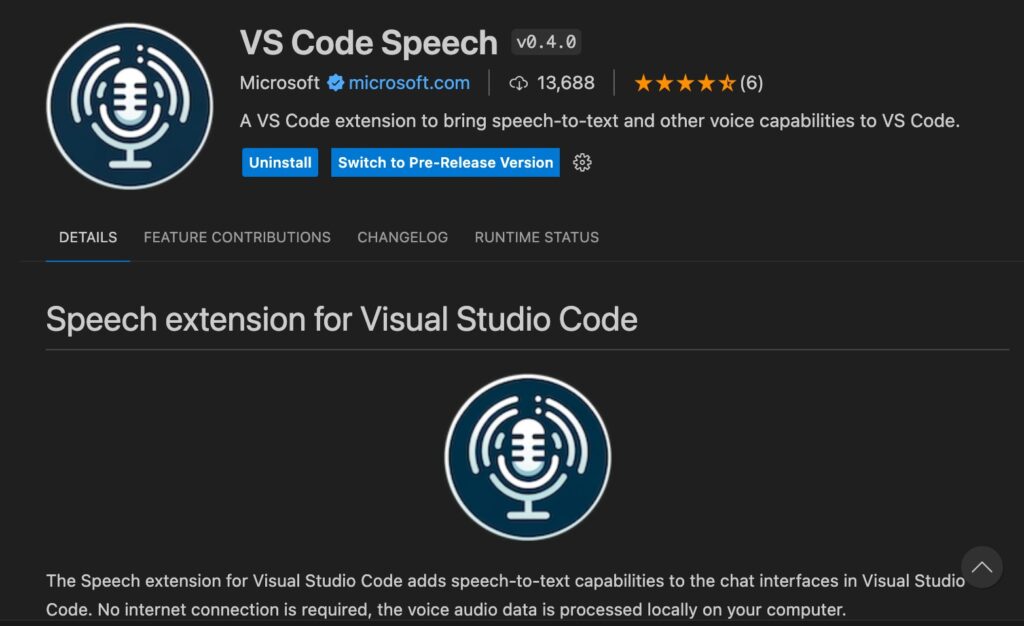
Microsoft’s Visual Studio Code, the most popular code editor by most measures, has introduced voice sessions – though only for Copilot subscribers – as well as other updates including triggered breakpoints and configurable auto save.
“Hey Code” is an accessibility feature which can be set to one of four options – including a Chat view, inline in the editor, or “chatInContext” which selects according to the focus. Speech recognition, Microsoft promises, “runs locally on your machine and is never sent to any server.”

The feature has two dependencies: a GitHub Copilot subscription and the corresponding extension, and the VS Code Speech extension. This Speech extension only works in English, though there is a hint of “more language support to come in the future.” The extension is currently version 0.4 and described as “still in development,” despite the introduction of the Hey Code feature.
Speech to text is not reserved only for Copilot use. There are also commands to start and stop voice input in the terminal. We tried this and found it of little use currently – the speech recognition works but nuances like typing Enter versus pressing the Enter key are either missing or not documented. It works better with Copilot as the cloud service has more sophisticated AI to determine the user’s likely intention.
The most obvious use case – dictating code into the editor – is an issue that has been open since December 2017. “Investigate dictation support” is now an active task for this month’s iteration plan, building on this relatively new speech to text extension. A team member also remarked that building speech to text into the core of VS Code is “unlikely given the size of the extension.” VS Code will be competing with third-party and operating system support for speech to text, so it’s unclear whether this would be a worthwhile investment.
The new VS Code update is the first for two months, with the usual monthly cycle interrupted by the holiday season.
In December VS Code acquired a much-requested feature: floating editor windows – though with some quirky behavior. One quirk which has now been fixed is that floating windows will be restored when VS Code is restarted. There is also a new option to open Notebook editors in floating windows.
Another welcome update in this release – and perhaps the most significant for those who do not require voice input – is configurable auto-save. Auto-save is generally convenient and makes it less likely to lose work, but can be troublesome since removing inadvertent or mistaken edits requires the undo key, or restore from version control. In version 1.86, all auto-save settings can be configured per folder or per file type. There is also an option to disable auto-save when there are errors detected, and another to disable auto-save for files that are outside the current workspace.
